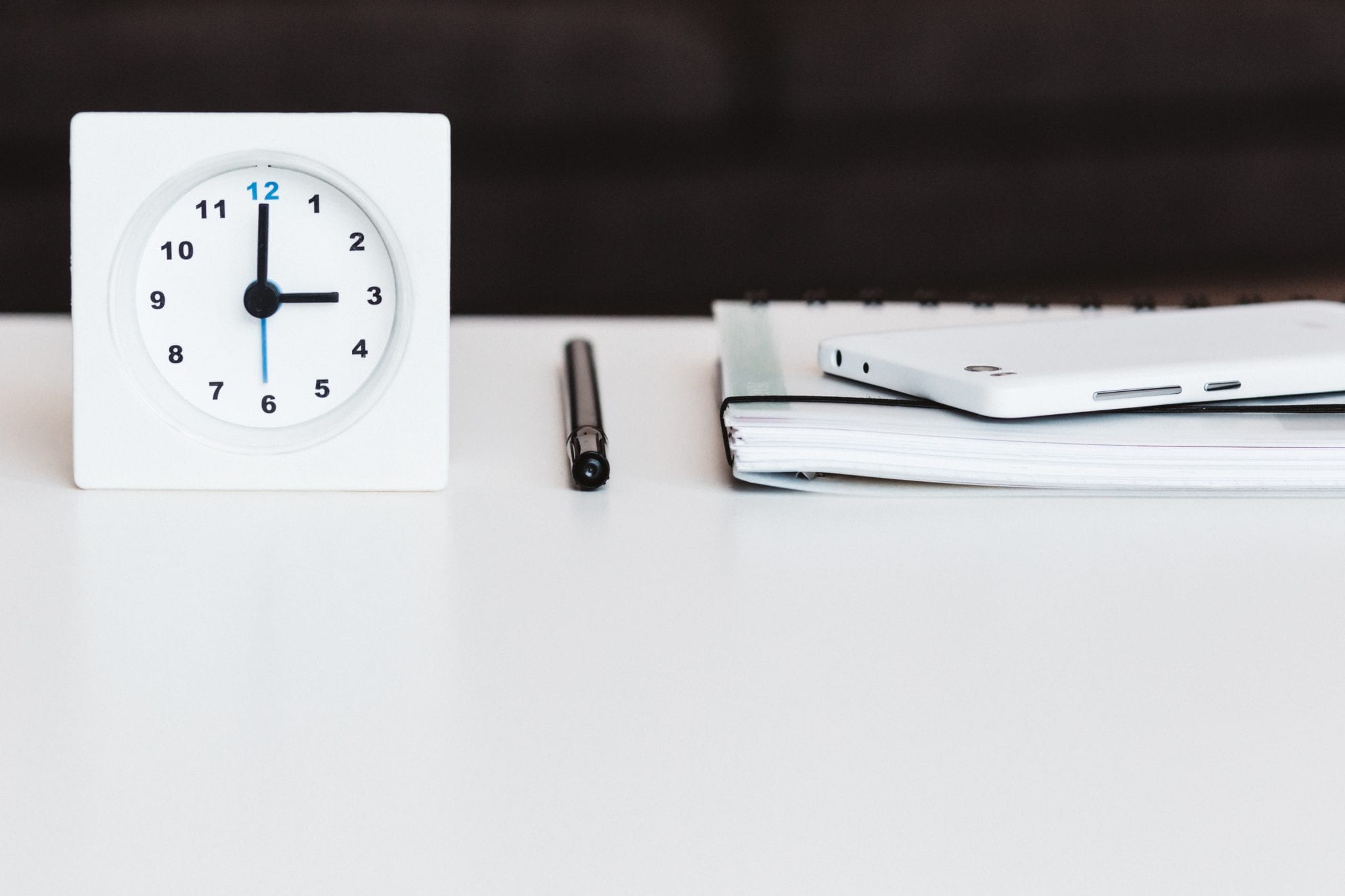I had every intention to crank this article out immediately following my morning routine. Already had the material put together in an outline, and I’d put it in my calendar to-do-list. I kept dragging my feet on writing the piece all morning. Even worse, while I’m usually a pro at blocking out distractions, I was more than willing to get a fantastic amount of work done quickly. This action is my favorite procrastination mojo — catch up and fix problematic back issues that are driving my team or me crazy. What’s the science behind procrastination and how you’ll beat it?
What’s going on here? Obviously — this is my go-to for procrastinating — something that everyone struggles with at some point. But you’ll want to figure out and know yourself well enough to answer this question precisely, “what is my procrastination mojo.”
Joseph Ferrari is a professor of psychology at DePaul University in Chicago. Ferrari is the author of Still Procrastinating: The No Regret Guide to Getting It Done. Dr. Ferrari claims that “roughly 20 percent of U.S. adults are chronic procrastinators.” But, the statement by Ferrari begs the question, Why do we procrastinate, and what can we do to topple it?
What exactly is procrastination?
Before answering the questions above, let’s quickly define procrastination. And, let’s go over why what it’s such a big deal. If you conducted a search inquiry for “procrastination definition,” the first result is probably this: the action of delaying or postponing something. As pointed out by Piers Steel Ph.D. in a Psychology Today article, “if procrastination means simply delay — then we should be comfortable placing it along with the similar concepts of scheduling or prioritizing.”
However, being comfortable with placing procrastination in blocks alongside related issues is generally not the case. For example, your flight is delayed due to inclement weather. A delayed flight — and the weather are both issues entirely out of your control. These matters occur and cannot be interpreted as you being “lazy” or “unmotivated” in any way. Timothy Pychyl says that “all procrastination is a delay, but not all delay is procrastination.”
If all procrastination is a delay — to me, that makes procrastination a unique type of postponement — since we often recognize the negative consequences. A better definition might be the one found in UPMC HealthBeat. The site describes procrastination as “the avoidance of work or necessary tasks by focusing on more satisfying activities that are due to a chemical in the brain.
Procrastination boils down to a battle between the limbic system and the prefrontal cortex,” further explains UPMC HealthBeat. “The limbic system is a set of brain structures containing the pleasure center, while the prefrontal cortex controls planning and decision making.” Since the prefrontal cortex isn’t as “developed and thus weaker, so often the limbic system wins out, leading to procrastination.”
The effects of procrastination.
Sometimes the argument going on between the limbic system and the prefrontal cortex isn’t a bad thing. Sometimes you may choose to delay doing something because it’s the best idea at the time. For example, I wasn’t going to write this article until I was more focused — I didn’t want to write a half-hearted piece.
Others who have embraced procrastination have claimed that they make better decisions, provides insights, and sparks creativity. Sometimes structured procrastination can help you get more done and eliminate unnecessary tasks. At the same time, chronic procrastination should be avoided. Restraining yourself from procrastination is because practicing poor habits can become — well — habits. Patterns have severe consequences, and you don’t want the habits that will harm you.
The most apparent negative impact would be missing deadlines. For instance, not filing your taxes on time, failing to submit a project by the due date, or waiting to buy a birthday present for your spouse at the last minute. All of these actions and non-actions will affect your career and personal life. As a result, poor-action habits can damage relationships and put your health in jeopardy.
Science Behind Procrastination: The Different types of procrastination.
Hopefully, you have a better understanding of what procrastination is and what impact — for good or not-so-good — this action will have in your life. Keep in mind, non-action is still an action. If you have made a decision and taken the “action of not acting” — there will always be a consequence.
Now it’s time to figure out which type of procrastinator you are so that you can get to the bottom of why you’re not getting things done. Or you’ll want to know why you are doing other things instead of making a plan and working the plan. According to psychologist Neil Fiore, and author of Awaken Your Strongest Self, there are five common types of procrastinators:
-
The Perfectionist.
Perhaps the most common kind of procrastinator who strives for the best and is their own worst critic because they don’t want to be embarrassed. “They may spend too much time on one component of a project, failing to manage their time properly. Or, they avoid the project altogether, then rush to finish it at the last minute,” writes Fast Company‘s, Gwen Moran.
-
The Imposter.
“Afraid of being revealed as unqualified or inferior, this procrastinator puts off doing anything to avoid that risk,” adds Moran. “Often, this type of procrastinator has learned to feel like an imposter when they are surrounded by people who are difficult to please.”
-
The Dread-Filled.
Out of all the different types of procrastination, this person is the most rational. After all, when you can’t stand what you’re doing — it’s almost impossible to find the motivation to get started.
-
The Overwhelmed.
The overwhelmed individual is a more contemporary type of procrastinator and one that I feel a lot of entrepreneurs fall into this category. “Sometimes, there’s just too much to do, and it’s hard to figure out where to start—so we don’t do anything,” Fiore explains and is quoted by Moran.
-
The Lucky One.
“Some people believe they do their best work under pressure, so they procrastinate until their back is up against the wall,” Nicole Bandes, founder of the consultancy the Productivity Expert,” told Moran. “If they have a history of doing this without consequence, they’ve essentially been rewarded for procrastinating.”
What drives procrastination.
We’ve briefly gone over why some people put off getting around to specific tasks. But, let’s dive a little deeper here. For starters, as Ishan Daftardar explains on Science ABC, as humans are simply wired and driven toward procrastination. “We can picture this whole process as a fight that has been sparked between two parts of the mind when it’s faced with a tedious task: a battle of the limbic system (the unconscious zone that includes the pleasure center) and the prefrontal cortex (the internal “planner”).”
“When the limbic system dominates,” continues Daftardar, “the result is putting off until tomorrow what could (and should) be done today.” Simply put, procrastination “all comes down to one simple thing – the wiring of your brain.” It should also be noted that the limbic system is one of the most dominant parts of the brain. It also controls mood and instinct.
An “instinct” means that emotions like fear, anxiety, anger, insecurity, and pleasure are all a part of this vital system. If emotions and instincts tie into procrastination, it’s easy to see that if you have to do something painful or stressful this system will urge you to stay away from it. Your instincts or emotions may be telling you something like, “danger, too much work,” when if fact, there would be less work if you just hurry and get the work done.
But you already know that emotions often have something irrational going on — somewhat like a “history program” running an app in the background of your mind. The old “history program app” is going to serve-you-up images, maybe even sound, to the weaker portion in your brain — the prefrontal cortex. “The prefrontal cortex (as we’ve just read), “is where you assimilate information and make decisions, says Daftardar. “The prefrontal cortex is what eventually forces us to complete a job or task.”
However, it takes some effort on your part to get the job done because the prefrontal cortex doesn’t work automatically. The reason behind this fact is that the limbic system takes control whenever we don’t succeed at a particular task. As a consequence, “you become more interested in doing something else that pleases you,” adds Daftardar.
Don’t forget about the amygdala.
There’s also the amygdala in there competing for attention. This “is the section of the brain associated with our automatic emotional reaction to a situation.” Whenever we feel stressed or overwhelmed, such as when having to tackle a challenging activity, a fight (resistance) or flight (ignore) reaction kicks into play.
“Both are forms of procrastination — the brain is protecting us against possible negative feelings,” concludes Daftardar. “The norepinephrine chemical takes over, causing increased levels of fear and anxiety. That’s when adrenaline gets pumped into the picture.”
Dr. Tim Pychyl, professor of psychology and member of the Procrastination Research Group at Carleton University in Ottawa, has a much more straightforward explanation in the New York Times. “Procrastination is an emotion regulation problem, not a time management problem.” Is this statement by Dr. Pychyl is true? I hate to think it’s true — but anything to do with how you get your business accomplished each day — and how you face the demands of making a living — bears taking a close look.
Here are other reasons why you might procrastinate.
There are, of course, more specific reasons why people procrastinate. For example, technology has changed our cognitive control thanks to frequent buzzings throughout the day. In other words, all of those notifications on your smartphone are diverting your attention.
Another reason is that we have difficulty visualizing our future selves. According to a study conducted by psychologists Neil Lewis of the University of Michigan and Daphna Oyserman of the University of Southern California, “when people viewed distant events as days, instead of months or years, they took action more quickly.”
Pamela D. Garcy Ph.D. adds that procrastination can be caused by:
- A lack of self-compassion.
- Learning this habit from role models like your parents.
- Believing that you can’t effectively complete a task.
- Being bias towards a specific task.
- Underestimating how long it takes you to get something done.
- Depression or anxiety.
- Feeling physically or psychologically uncomfortable.
Finally, avoiding anything that has negative associations is rewarding. “Our brains are always looking for relative rewards. If we have a habit loop around procrastination but we haven’t found a better reward, our brain is just going to keep doing it over and over until we give it something better to do,” psychiatrist and neuroscientist Dr. Judson Brewer, Director of Research and Innovation at Brown University’s Mindfulness Center, told the New York Times.
How can you overcome procrastination?
You can’t tell yourself to you snap out of it. Sometimes it requires you to do some rewiring of your habits. Dr. Brewer recommends that you give your brain a “Bigger Better Offer” or (B.B.O.).” What the BBO is saying, is get a reward for yourself that’s more substantial than the avoidance is giving your brain.
Forgive yourself quickly whenever you dilly dally. Other times you can stop procrastinating by merely establishing goals and routine. And, if that doesn’t work, then you should also try out the following techniques to overcome procrastination once and for all.
Awareness.
According to Princeton University’s McGraw Center for Teaching and Learning, the first steps to overcoming procrastination is to understand the reasons why you procrastinate:
“As with most problems, awareness and self-knowledge are the keys to figuring out how to stop procrastinating. For a lot of people acquiring this insight about how procrastination protects them from feeling like they are not able enough, and keeping it in mind when they are tempted to fall into familiar, unproductive, procrastinating habits goes a long way to solving the problem.”
After you’ve identified the root cause of procrastination, you can begin to take action. You may actually discover that it doesn’t take a whole lot to stop procrastinating. For instance, you may only need to change your environment, set deadlines, eliminate common distractions, or try telling others about your goals.
Do the worst thing first.
“We have a limited, depletable supply of willpower and resources,” says Piers Steel, Ph.D., a professor of human resources and organizational dynamics at the University of Calgary. Steel is the author of The Procrastination Equation: How to Stop Putting Things Off and Start Getting Things Done. To counter this depletable supply of willpower, tackle your most challenging or heinous task first thing in the morning when you have the most energy.
Mindful training.
You will usually procrastinate because you feel anxious or overwhelmed. One of the best ways to combat this is through mindfulness. “Research has already shown that mindfulness meditation is related to amygdala shrinkage, expansion of the pre-frontal cortex, and a weakening of the connection between these two areas.” This statement was said by Prof Tim Pychyl from Carleton University to the BBC. Apps like Calm or Headspace can help you get started in becoming more mindful.
Get rid of catastrophizing.
“One of the biggest reasons people procrastinate is because they catastrophize, or make a huge deal out of something,” writes Elizabeth Lombardo Ph.D. for Psychology Today. “It may be related to how tough, how boring, or how painful it will be to complete the task; whatever the case, the underlying theme is that doing the task will be ‘unbearable.’”
“In reality, challenges, boredom, and hard work will not kill you — or even make you sick,” adds Lombardo. “Procrastination, on the other hand, is associated with stress. Think of the stress you feel when you avoid making a phone call you know you need to make.” The solution then is to “keep things in perspective and assuring yourself that you can “get through it.”
Use the five-minute rule.
“If you don’t want to do something, make a deal with yourself to do at least five minutes of it,” says Instagram co-founder Kevin Systrom. “After five minutes, you’ll end up doing the whole thing.” This strategy of “just starting” works for a couple of reasons. The first is that it encourages us to break down larger goals into more manageable pieces. The second is because of a psychological phenomenon called the Zeignarik Effect. This “effect” means that you have the tendency to remember unfinished tasks. So, in theory, if you start something, it will stick with you until it’s completed.
Practice self-compassion.
Research has found that self-forgiveness is one of the best cures for procrastination. Sounds simple? Not really. But, the sooner you forgive yourself and move on from past procrastination, the more likely you’ll experience any further delays.
Change your thinking.
“You may be procrastinating because you feel that you’re being forced by someone else to perform a task that you don’t want to do,” writes entrepreneur and lawyer Marelisa Fabrega. For example, you may feel like your co-founder is manipulating you in fixing a bug on your app. Obviously, you don’t like feeling this way — so you do everything but fix the bug issue. To get around this propensity inside yourself — start telling yourself that you choose to fix the app instead of believing that you have to.
Use your calendar.
“Put the tasks you need to do in your calendar — and commit yourself to get them done,” suggests Paul Petrone in a LinkedIn post. “The act of writing things down (as well as the satisfaction of crossing them off your list) will increase the chances you’ll do them on schedule.”




